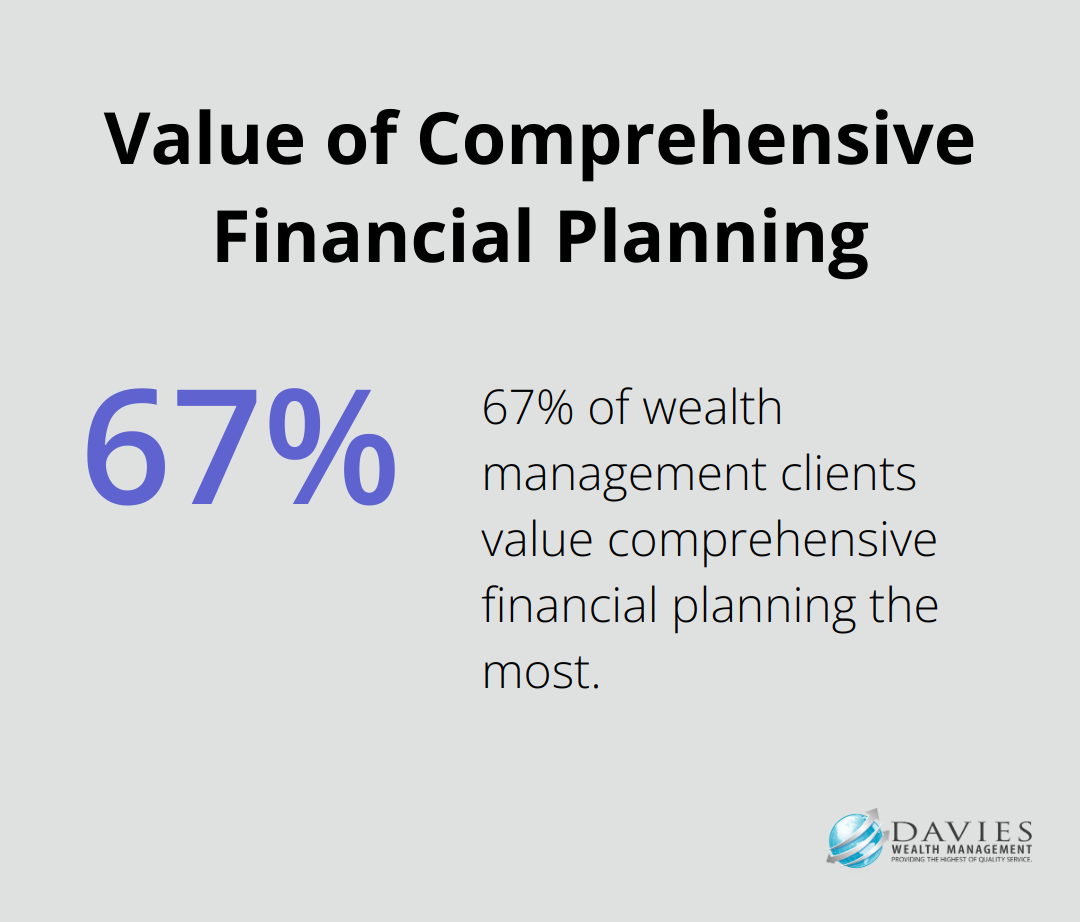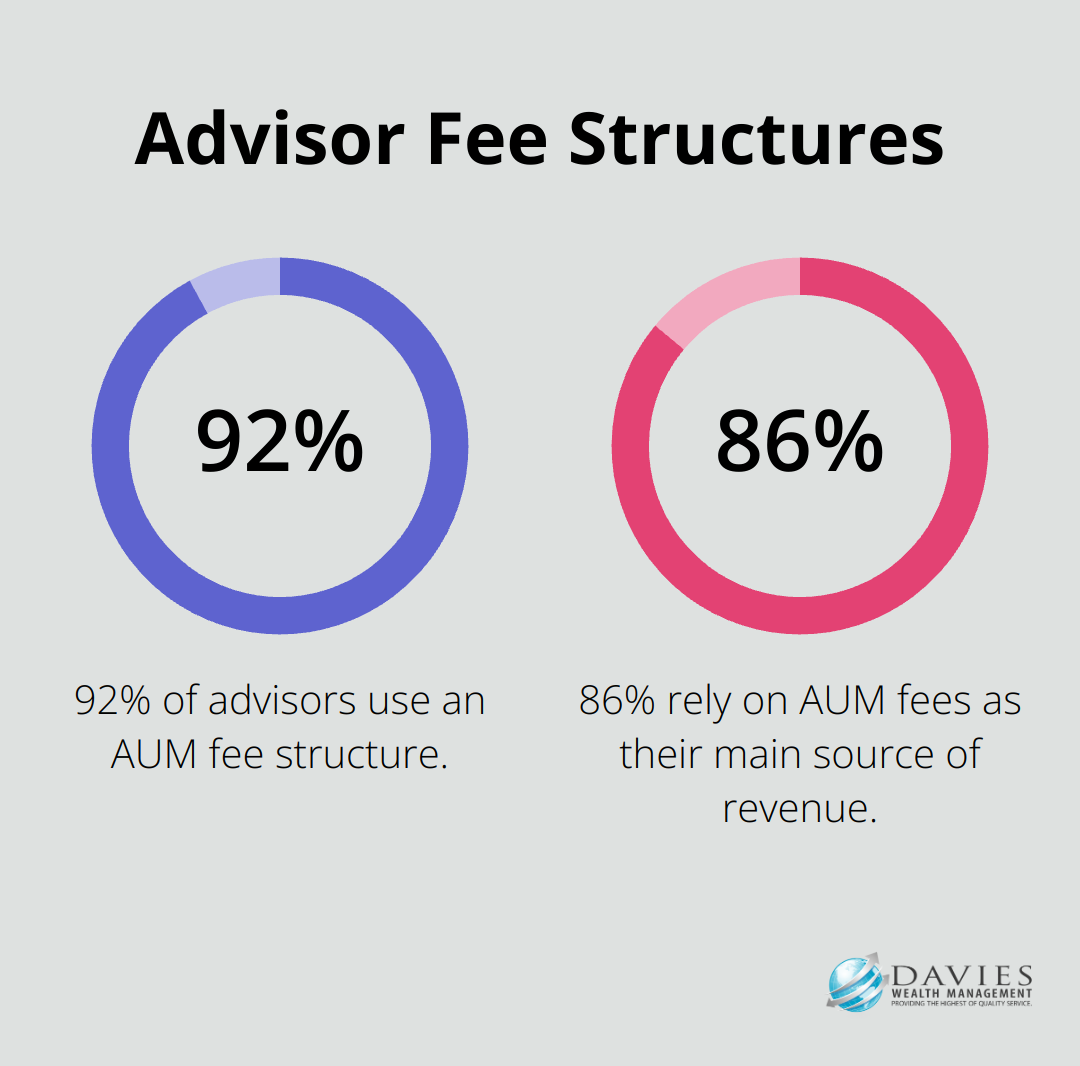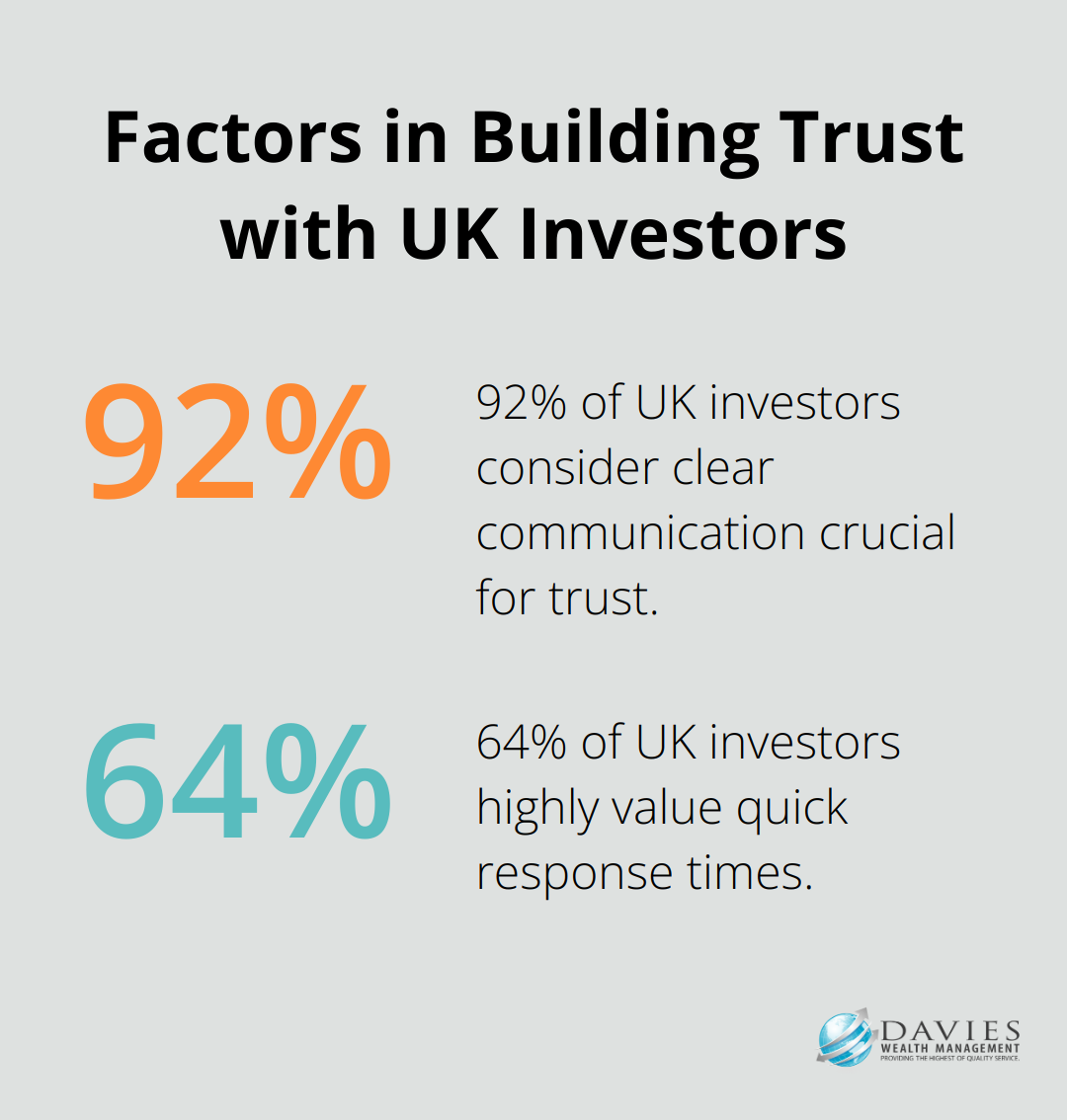Choosing a wealth manager is a critical decision that can significantly impact your financial future. At Davies Wealth Management, we understand the importance of this choice and its potential to shape your long-term financial success.
This guide will provide you with essential insights and key factors to consider when selecting a wealth manager who aligns with your financial goals and values.
What Is Wealth Management?
Comprehensive Financial Services
Wealth management represents a holistic approach to financial planning that extends beyond basic investment advice. It encompasses a broad spectrum of services designed to address the complex financial needs of high-net-worth individuals and families. These services typically include investment management, tax planning, estate planning, retirement planning, and risk management. A study by Cerulli Associates revealed that 67% of wealth management clients consider comprehensive financial planning as the most valuable service offered by their advisors.

Tailored Strategies for Unique Needs
The hallmark of wealth management lies in its personalized approach. Wealth managers craft bespoke strategies that align with each client’s unique circumstances and goals. This customization proves particularly vital for clients with intricate financial situations (such as professional athletes who face distinctive challenges like short career spans and variable incomes).
The Wealth Manager vs. Financial Advisor Distinction
While often used interchangeably, key differences exist between wealth managers and financial advisors. Wealth managers primarily serve high-net-worth individuals and offer a more extensive suite of services. According to a PwC report, wealth managers usually require a minimum investment of $1 million or even more just to open an account, whereas financial advisors may work with clients across various asset levels.
Specialized Expertise
Wealth managers possess specialized knowledge in areas such as tax optimization and estate planning. They adopt a holistic view of a client’s financial life, coordinating with other professionals (e.g., attorneys and accountants) to provide integrated solutions. This level of coordination and expertise proves especially valuable for clients with complex financial needs, such as business owners or individuals with substantial inherited wealth.
The Role of a Wealth Manager
A wealth manager acts as a financial quarterback, assisting clients in navigating complex financial landscapes. They not only manage investments but also provide guidance on tax strategies, estate planning, and risk management. This comprehensive approach helps clients navigate complex financial landscapes and make informed decisions that align with their long-term goals.
As we explore the intricacies of wealth management, it becomes clear that selecting the right wealth manager plays a pivotal role in achieving financial success. Let’s now examine the key factors to consider when choosing a wealth manager who can effectively guide you through your financial journey.
How to Evaluate Potential Wealth Managers
Credentials and Experience Matter
When you assess a wealth manager’s qualifications, look for recognized certifications such as Certified Financial Planner (CFP) or Chartered Financial Analyst (CFA). These credentials demonstrate a commitment to professional standards and ongoing education. To become a CFP, individuals must complete a CFP Board Registered Education Program, pass the CFP® Exam, hold or earn a 4-year degree, demonstrate financial planning experience, and meet ethics requirements.
Experience holds equal importance. You should seek wealth managers with a proven track record of at least 5-10 years in the industry. This ensures they’ve navigated various market conditions and economic cycles. Ask about their experience with clients in similar financial situations to yours. (For instance, if you’re a professional athlete, a wealth management firm with specialized focus in this area could be particularly beneficial.)
Transparency in Fees and Services
Understanding a wealth manager’s fee structure is essential. According to a 2025 report, 92% of advisors use an AUM fee structure, with 86% relying on AUM fees as their main source of revenue.

You should ask potential wealth managers for a detailed breakdown of all fees, including management fees, transaction costs, and any hidden charges. Transparency in fee structures builds trust and helps you make accurate comparisons between different providers.
Investment Philosophy and Approach
A wealth manager’s investment philosophy should align with your financial goals and risk tolerance. Some managers focus on passive index investing, while others prefer active management strategies.
You should inquire about potential wealth managers’ investment process, how they construct portfolios, and how they manage risk. Their answers will give you insight into their expertise and whether their approach aligns with your financial objectives.
Comprehensive Service Offerings
Top-tier wealth management extends beyond basic investment advice. You should look for firms offering a wide range of services, including tax planning, estate planning, and retirement strategies. High-net-worth (HNW) clients have unique expectations and goals, and are in different places on their financial journeys.
The right wealth manager should not only have the necessary qualifications and experience but also understand your unique financial situation and aspirations. As you consider these factors, you’ll be better equipped to choose a wealth manager who can effectively guide you towards your financial goals. The next chapter will explore the importance of trust and communication in the wealth management relationship.
Building Trust in Wealth Management
The Foundation of Trust
Trust forms the bedrock of successful wealth management relationships. Clients who trust their advisors tend to adhere to their financial plans more consistently and achieve superior long-term outcomes. As an industry, wealth management services have enjoyed a high client retention rate in recent years, with an all-time high in 2020 at 94.6%.
Effective Communication Strategies
Open and frequent communication strengthens the bond between clients and wealth managers. We recommend quarterly review meetings to discuss portfolio performance, market conditions, and any changes in your financial situation. These regular check-ins keep you informed and provide opportunities to adjust your strategy as needed.
Professional athletes (who often experience rapid financial changes) might benefit from more frequent communication. Many wealth management firms tailor their communication frequency to each client’s unique needs, acknowledging that some situations require more regular updates.
Aligning Financial Goals and Risk Tolerance
A wealth manager who comprehends your financial goals and risk tolerance can create a strategy that aligns with your needs. We suggest the use of risk assessment questionnaires and goal-setting exercises to ensure your wealth manager has a clear picture of your financial objectives.
Advisors who take the time to understand personal goals, communicate openly, and build lasting trust are not only earning higher client satisfaction but also achieving better outcomes for their clients.
Accessibility in Modern Wealth Management
In today’s fast-paced financial world, the ability to reach your wealth manager when you need them is essential. Look for a wealth management firm that offers multiple communication channels, including phone, email, and secure messaging platforms. Clear communication (92%) is the most crucial factor for UK investors when it comes to trusting their adviser, with quick response times (64%) also being highly valued.

Many top-tier wealth management firms prioritize accessibility, ensuring clients can reach them when they need guidance or have concerns. This level of responsiveness proves particularly valuable during market volatility or when faced with significant financial decisions.
Final Thoughts
Choosing a wealth manager requires careful consideration of qualifications, experience, and service offerings. You should evaluate potential candidates based on their credentials, investment philosophy, and ability to address your unique financial needs. A thorough assessment will help you find a professional who aligns with your goals and values.
The right wealth manager will provide comprehensive financial planning tailored to your specific situation. They will offer expertise in areas such as investment strategy, tax optimization, and estate planning. Their guidance can prove invaluable as you navigate complex financial landscapes and work towards long-term objectives.
At Davies Wealth Management, we offer personalized wealth management solutions designed to meet your individual needs. Our team of experienced professionals is committed to helping you build, protect, and transfer your wealth with confidence. We strive to provide the expertise and support you need to achieve financial success and peace of mind.



Leave a Reply